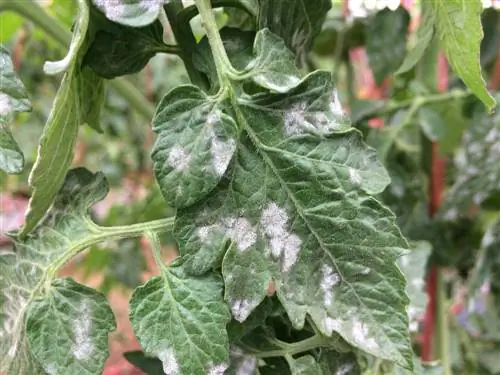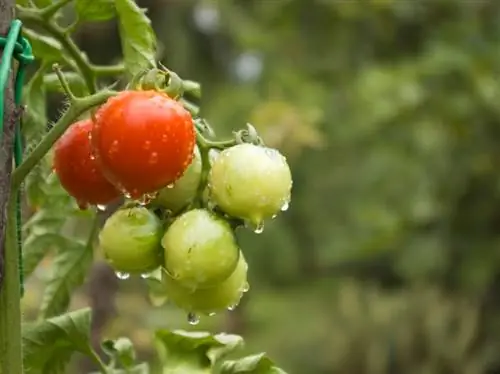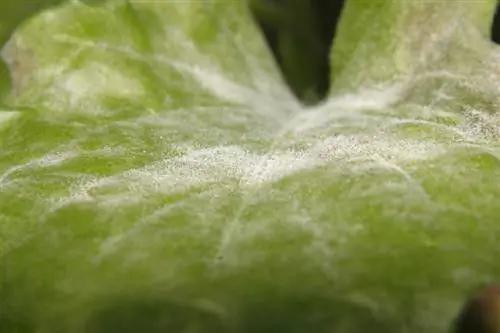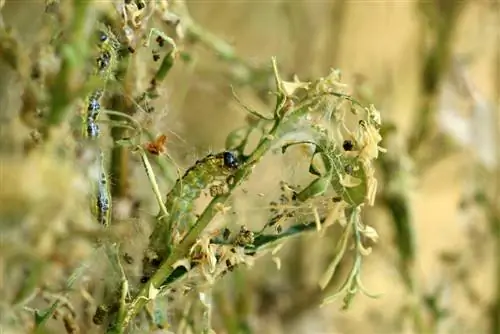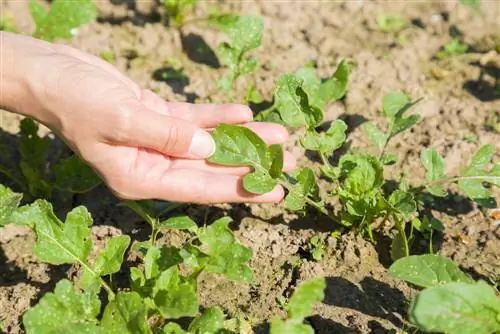- Author admin leonars@hobbygardeners.com.
- Public 2023-12-16 16:46.
- Last modified 2025-01-23 11:22.
An infestation by mildew fungi can affect any hobby gardener, because the species are widespread and occur in all weather conditions. Anyone who notices the first signs of an infestation should act quickly.
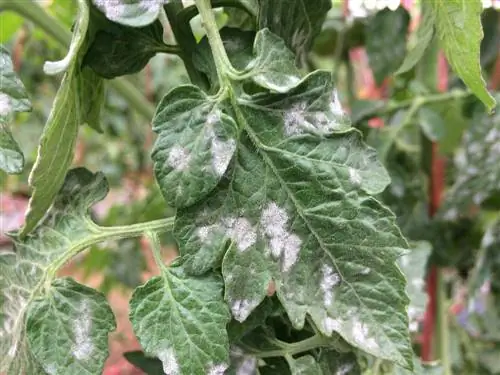
How do I remove mildew from my plants?
To remove mildew, field horsetail broth, garlic broth, milk, rapeseed oil or baking soda can be used. These natural remedies help to fight the fungi and protect the plants from further infestation.
Downy mildew
Fungi in this group prefer cool and moist weather conditions. Grayish fungal patches form on the underside of the leaves, occasionally with a purple hue.
Field horsetail broth
horsetail contains a lot of silica. These oxygen acids in silicon are important for the strength of plant cell walls. Silicon deposits in the tissue make it difficult for fungal spores to penetrate. Plants absorb the substance through their roots and pass it into leaves and shoots. Therefore, horsetail can help against powdery mildew if the herb is administered in the form of a liquid fertilizer.
How silica works:
- Plant stores increased amounts of silicon in areas with fungal growth
- Impenetrable crusts form below the epidermis
- Fertilization with silica prevents mildew from spreading further
Garlic stock
If the fungal infection is in the early stages, treatment with garlic decoction against mildew can help. Cut four cloves of garlic and pour hot water over them. Let the brew steep and spray it on the affected areas every seven to ten days.
Powdery mildew
These mushrooms are considered fair-weather mushrooms because they prefer warm conditions. A whitish coating on the upper side of the leaf is typical, which later turns greyish.
Milk
Milk helps against mildew, because the microorganisms create an unfavorable environment for the fungus. Sodium phosphate strengthens the immune system and prevents infections. Spray the entire plant twice weekly with a mixture of one part milk to nine parts water.
Rapeseed oil
Edible oils are rich in lecithins, with soybean oil having the highest concentration of all oils at two percent. These chemical compounds strengthen the plants' defenses. Regular spraying reduces the infestation.
Soda
Sodium bicarbonate, which is contained in baking powder, reacts slightly alkaline in water. After spraying, an environment is created on the leaves that powdery mildew does not like. Regular treatment with the spray solution can reduce the infestation.
Tip
The black and yellow mushroom ladybird happily eats up the whitish mushroom lawn.

